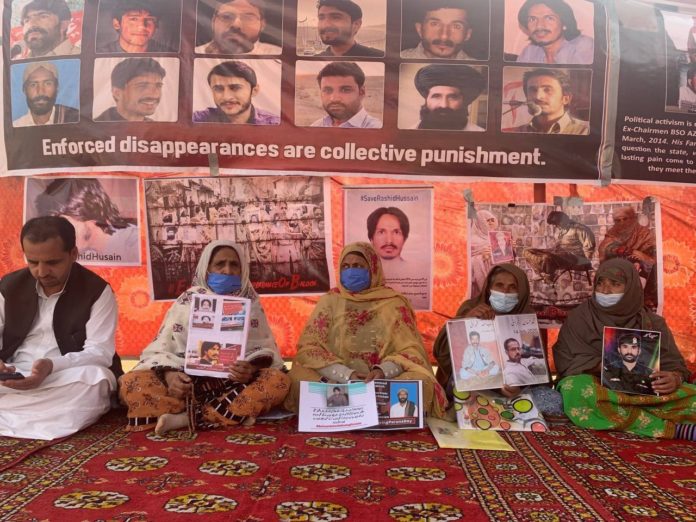Quetta: The international community must urgently intervene in Balochistan as the occupying Pakistani forces are engaged in “systematic atrocities, marginalization and human rights violations” of the Baloch people, a rights body has said while highlighting some “alarming” cases of oppression.
Paank, the human rights entity of the Baloch National Movement (BNM), released a comprehensive report on the state of human rights for December 2023 and said “the continued string of human rights violations by Pakistani forces during this period has sparked grave concerns regarding ongoing atrocities against the Baloch population.”
It implored international organizations to intervene and address this distressing situation on urgent basis, said a press statement issued by the organization.
“December witnessed a series of enforced disappearances, extrajudicial killings, and a sustained crackdown on the peaceful March, a movement advocating for justice and accountability,” it said.
A detailed review presented by PaanK reveals alarming statistics regarding human rights violations in Balochistan, it said.
According to this data, the Pakistani army enforced the disappearance of 54 individuals from various regions, while 32 people were eventually released and reunited with their families after enduring prolonged forced disappearances.
PaanK highlighted two cases of extrajudicial killings by the Pakistani agencies in December — that of Sharif Bugti and ‘Zahir.
It also referred to the Baloch Long March last month, which originated in Kech, Balochistan’s bordering district with Iran, and after traversing several cities and towns reached Islamabad where the Pakistani authorities used brutal force against the participants, including children and women.
The trigger for the Long March was the extrajudicial and custodial killings carried out in Turbat as part of a series of such incidents.
Also read: Baloch Long March: Participants go traceless after crackdown by Pakistani forces
“Despite facing obstacles and violent responses from authorities, the movement (Long March) gained momentum and garnered support from various communities across Pakistan,” the PaanK report noted.
PaanK’s report extensively detailed the “harsh and uncompromising” government response, which included filing of multiple FIRs against human rights leaders and attempts to suppress protests by erecting barricades at many locations.
Upon their arrival in Islamabad, the Long March participants faced adversities, with over 200 people, including women and children, subjected to arrest, torture, and mistreatment, the report notes.
“Nevertheless, the movement received substantial national and international public support,” it said.
In an appeal to international human rights organizations, PaanK urged these entities to rally global public opinion and hold the Pakistani army accountable for the ongoing atrocities.
“The situation in Balochistan remains dire as peaceful protesters persistently endure repression and the denial of fundamental rights. This appeal stands as a crucial demand to end atrocities and ensure justice for the Baloch nation,” reiterated PaanK.
Concluding the report, PaanK emphasized, “The call for international intervention isn’t solely for the present but marks a significant historical need to address the decades-long systematic atrocities, marginalization, and human rights violations faced by the Baloch nation. It’s imperative.”







